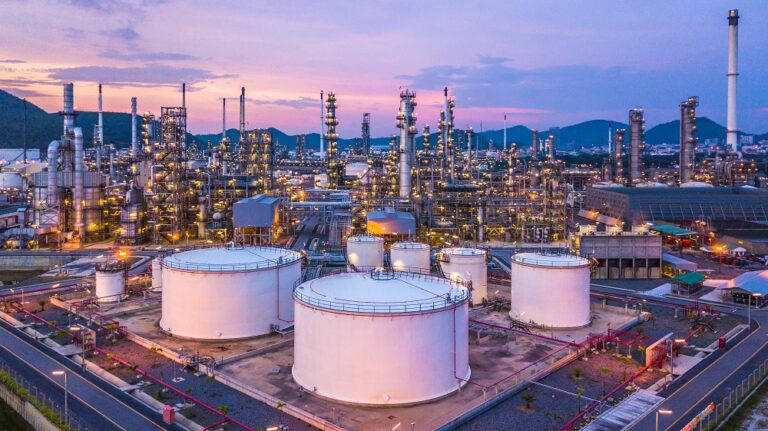Nigeria has made significant progress in boosting its crude oil refining capacity through strategic initiatives aimed at both new refinery projects and the rehabilitation of existing facilities.
The country is set to welcome three new refineries, which are expected to collectively add 140,000 barrels per day (BPD) to Nigeria’s refining capacity. The Nigerian Midstream and Downstream Petroleum Regulatory Authority (NMDPRA) has issued licenses for the construction of these new refineries, reflecting the government’s broader efforts to reduce reliance on imported petroleum products and enhance domestic refining capabilities.
In addition to these new projects, the Nigerian government has been investing in the rehabilitation of state-owned refineries located in Port Harcourt, Warri, and Kaduna. These facilities have long suffered from neglect and underperformance. The Nigerian National Petroleum Company (NNPC) is leading these refurbishments with the aim of restoring full operational capacity, thereby improving energy security and alleviating the financial burden of fuel subsidies.
The three newly licensed refineries include:
– Eghudu Refinery Limited, a 100,000 bpd refinery in Edo State
– MB Refinery and Petrochemicals Company Limited, a 30,000 bpd refinery in Delta State
– HIS Refining and Petrochemical Company Ltd, a 10,000 bpd refinery in Abia State
These facilities will not only enhance Nigeria’s refining capacity but also strengthen domestic petroleum processing. Nigeria has played a significant role in expanding Africa’s refining capacity, contributing to 71% of the region’s growth in this sector. A major catalyst for this expansion is the Dangote Refinery, which began operations in 2024 with a capacity of 650,000 bpd. This facility is expected to decrease dependence on imported refined petroleum products and improve energy security.
As competition in Nigeria’s petroleum industry intensifies, the resurgence of local refineries is anticipated to drive down prices due to increased supply. The growing number of refining facilities is creating a more competitive market environment, which could lead to lower prices for Premium Motor Spirit (PMS) and make fuel more affordable for consumers.
By increasing the availability of locally refined petroleum products, Nigeria is positioned to achieve better quality control, enhanced energy security, and reduced dependence on imports. These initiatives, along with the rise of operational modular refineries, reflect a strategic push towards self-sufficiency in petroleum refining.

